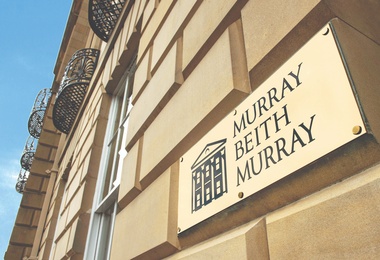 If you have been appointed as an executor of a loved one’s estate, one of the most important responsibilities you have is to obtain a valuation of the estate. The process of valuing a loved one’s assets can be challenging and confusing. In this article, we set out some of the things you must be aware of when obtaining a valuation of a deceased’s assets in Scotland.
If you have been appointed as an executor of a loved one’s estate, one of the most important responsibilities you have is to obtain a valuation of the estate. The process of valuing a loved one’s assets can be challenging and confusing. In this article, we set out some of the things you must be aware of when obtaining a valuation of a deceased’s assets in Scotland.
Firstly, you will need to make a list of all the assets of the deceased, any debts and any gifts made by the deceased in the seven years prior to his/her death.
Assets
The basic rule for valuing an asset is that it should be valued at its ‘open market value’. This is the price the asset could reasonably be expected to attract if it were sold around the time your loved one passed away. ‘Assets’ is a broad term covering anything the deceased owned either individually or jointly.
Typically, assets which should be valued include:
- Any land or properties
- Personal possessions
- Any business assets held by the deceased
Gifts
Any gifts worth more than £3,000 or more in any tax year, within seven years of death, which are not covered by any other Inheritance Tax exemption, will be added to the value of the estate for inheritance tax purposes. The value of the gift is determined by the value at the time the gift was made unless the deceased continued to benefit from the gift, in which case the value at the time of death is used.
The difference between individual and jointly owned property
The deceased may have owned property jointly with another person, and this will need to be valued and included as part of the estate. It is important to understand whether the assets were owned jointly. For example, many bank accounts allow another person to be named on the account for convenience, but the account is not actually held jointly.
Inheritance tax
You will need to calculate the value of the estate to determine whether there will be Inheritance Tax to pay. The estate will not have to pay Inheritance Tax if:
- the entirety of the estate will pass to the deceased person’s spouse or civil partner, a community amateur sports club, or a charity; or
- the value of the estate is below the Inheritance Tax threshold of £325,000
The tax threshold may be higher if the person who passes away was widowed or is passing on their home to their children. The valuation of the estate for Inheritance Tax purposes must be accurate, as it can affect other elements of the Confirmation process.
What happens if there was no Will?
If the deceased did not leave a Will, the value of the estate affects how it is dealt with. If the total value of the estate is below £36,000, it is possible to deal with the estate on an informal basis. However, if the value of the estate exceeds £36,000, you may need to apply for a Bond of Caution and Confirmation. You will also need to assess whether Inheritance Tax is due and complete the necessary forms.
Valuing an estate can be complicated and an involved process. You should instruct a solicitor to help you.
Specialist Executry (Probate) Solicitors, Edinburgh
At Murray Beith Murray, we're more than just lawyers - we're trusted advisors. We clearly outline the executry process, providing straightforward, practical advice and assistance. Our approach to client service is friendly and responsive, and we operate with the highest standards of integrity and professional expertise. For more information on the issues raised here, or any other Executry matter, please call us on {{CONTACT_NUMBER}} or complete our online enquiry form.